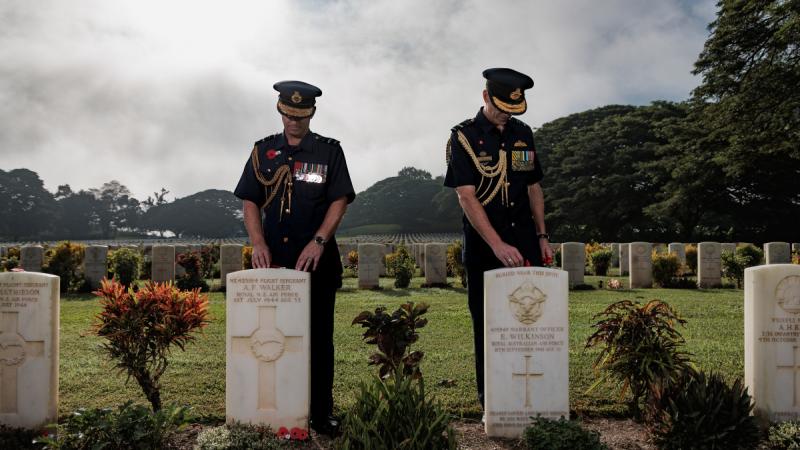Mass Monday Night Shooting Planned for Victoria’s 25,000 Alpine Heritage Brumbies
Imagine this. It’s late at night, and in the cool dark, a herd of horses – pregnant mares,
yearlings from last year’s foals, old horses, young horses, and the herd’s stallions with
the bachelor herds nearby, are quietly grazing. Suddenly, a shot rings out, and a mare
goes down, the herd panics at the sound and begins to run – not knowing they are
surrounded by ground shooters using thermal imaging and noise suppressors to
pinpoint where their targets are.
Was the mare killed with one shot? No-one will know until daybreak, but both she and
the foal she is carrying, will die this night, as will every horse in the herd in this particular
area of the Bogong High Plains and the Eastern Victorian Alps.
Not every death will be quick and none of them will be painless. Not one of the deaths is
necessary. With the support of Brumby Rehoming groups and concerned animal
welfare activists a management plan for Brumbies is easily achievable. Brumby
rehoming groups have presently offered to take in any Brumbies needing to be
removed, but Parks Victoria (the organisation legislated with protecting the National parks and all who reside within) have declined these offers and instead have opted to
shoot the Brumbies dead, based on inaccurate studies highlighted in the recent
Australian Brumby Alliance court hearing, and which are inconsistent with Park
Victoria’s ‘Statement of Obligations’.
It is unclear how Parks intend to humanely ground shoot a Brumby at night, or how they
will locate an injured Brumby to humanely euthanase (as they are expected to) –
furthermore what is the environmental impact of leaving rotting carcasses on the
ground?
It’s 20 years ago this year that over 600 Brumbies were shot in the debacle of the aerial cull in the Guy Fawkes National Park, which brought the full-scale mishandling of the removal of Brumbies from the National Parks to the public’s attention. How can a similar catastrophe be allowed to happen again?
As part of their Protection of the Alpine National Park: Feral Horse Strategic Action
Plan 2018–2021 Parks Victoria stated that shooting horses was NOT part of the plan.
Community consultation was conducted from December to February 2018, with the
plan approved AFTER community consultation.
However, on May 8, 2020, two years later, Parks Victoria announced they would be
using thermal imaging and noise suppressors to shoot dead a significant number of
horses in a specific area of the park on May 18 – only a few days from now. There was no community consultation for this lethal ‘additional technique’ that makes this action irregular and highly questionable.
The proposed shooting method does not comply with the Standard Operating Procedure (SOP) for Ground Shooting of wild horses.
Says Justine Curatolo, co-ordinator of the Protect Our Heritage Brumby Campaign:
“Parks Victoria are a State legislated body and they need to be held accountable, the
Plan was developed with community consultation, it is unacceptable that two years
later, Parks will change the Plan and add shooting when it was NOT included in the
original plan.”
The Brumbies of the Bogong High Plains carry the oldest horse bloodlines known in
Australia – if this shooting is carried out these bloodlines could be lost forever.
The members of the Protect Our Heritage Brumby Campaign are concerned that this
action will pave the way for other States to act with disregard for the community and
the Brumby and see many of our Heritage Brumbies needlessly killed.
Additional Background
University of Southern Queensland (USQ) Research
Management of Brumbies in the Alpine National Park should aim to minimise any
negative impact caused by wild horses and maximise any positive impact.
To do this the relationship between positive/negative impacts and wild horse density must be determined. While there have been many studies of the impact of wild horses on the
Alpine environment, none have addressed this relationship and none have considered
any positive impacts of horses on the environment and the consequences of removing them on other species in that habitat.
Designing improved experiments to measure the relationship between wild horse density and environmental impact requires improved understanding of the movement patterns and habitat use of wild horses in the Australian Alps. Studies using modern radio-telemetry devices are required for this purpose.
The University of Southern Queensland (USQ) commenced research during September
2019 which aims to develop an improved research design in order to measure the
relationship between horse density and environmental impact (positive and negative) of
wild horses. Dr David Berman is managing the study.
Victorian Alpine Brumbies
Brumbies have been an important part of the cultural history of the Bogong High
Plains and Eastern Victorian Alps for over 150 years. The current population is only
about 100 horses in the Bogong High Plains and approximately 5,000 during the 2019
population count, minus severe losses during the recent fires in the Eastern Victorian
Alps, meaning it is vital a new count is conducted across the east Victorian Alps
before extreme measures are taken by Parks Victoria.
Sign the Parlimentary Petition in Victoria: https://www.parliament.vic.gov.au/index.php?option=com_rsform&view=rsform&formId=74&Itemid=1054&petition_id=147







